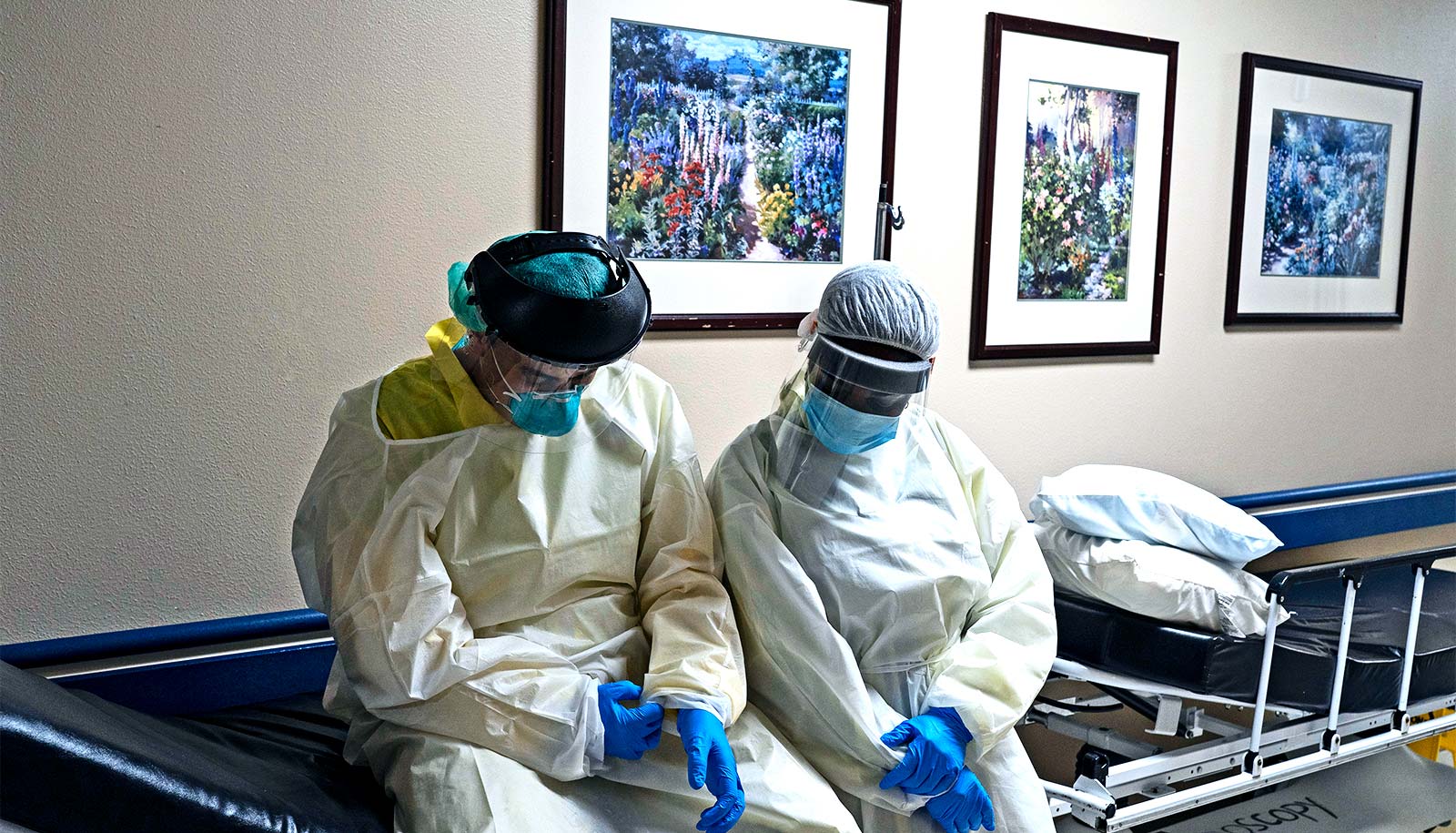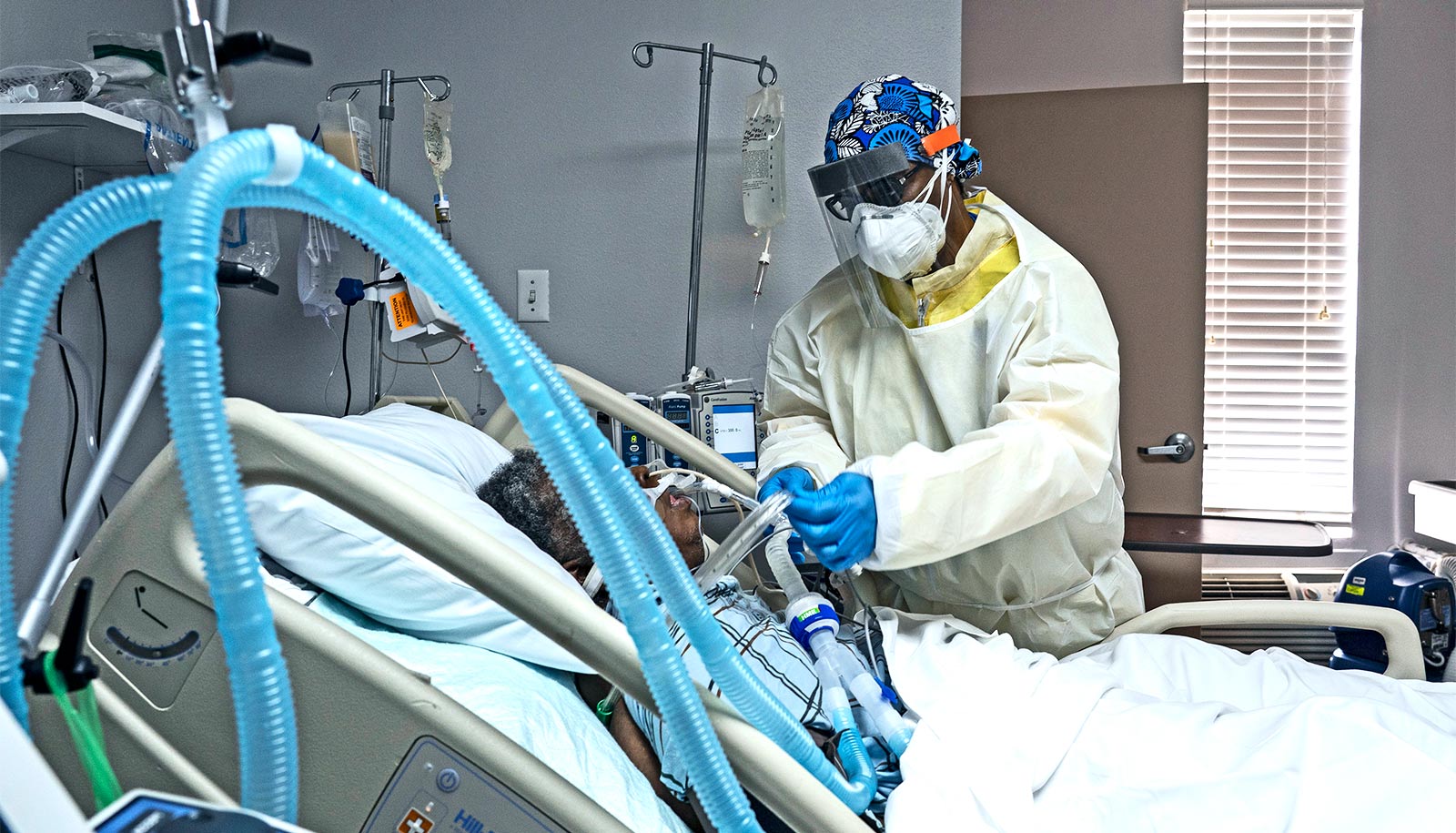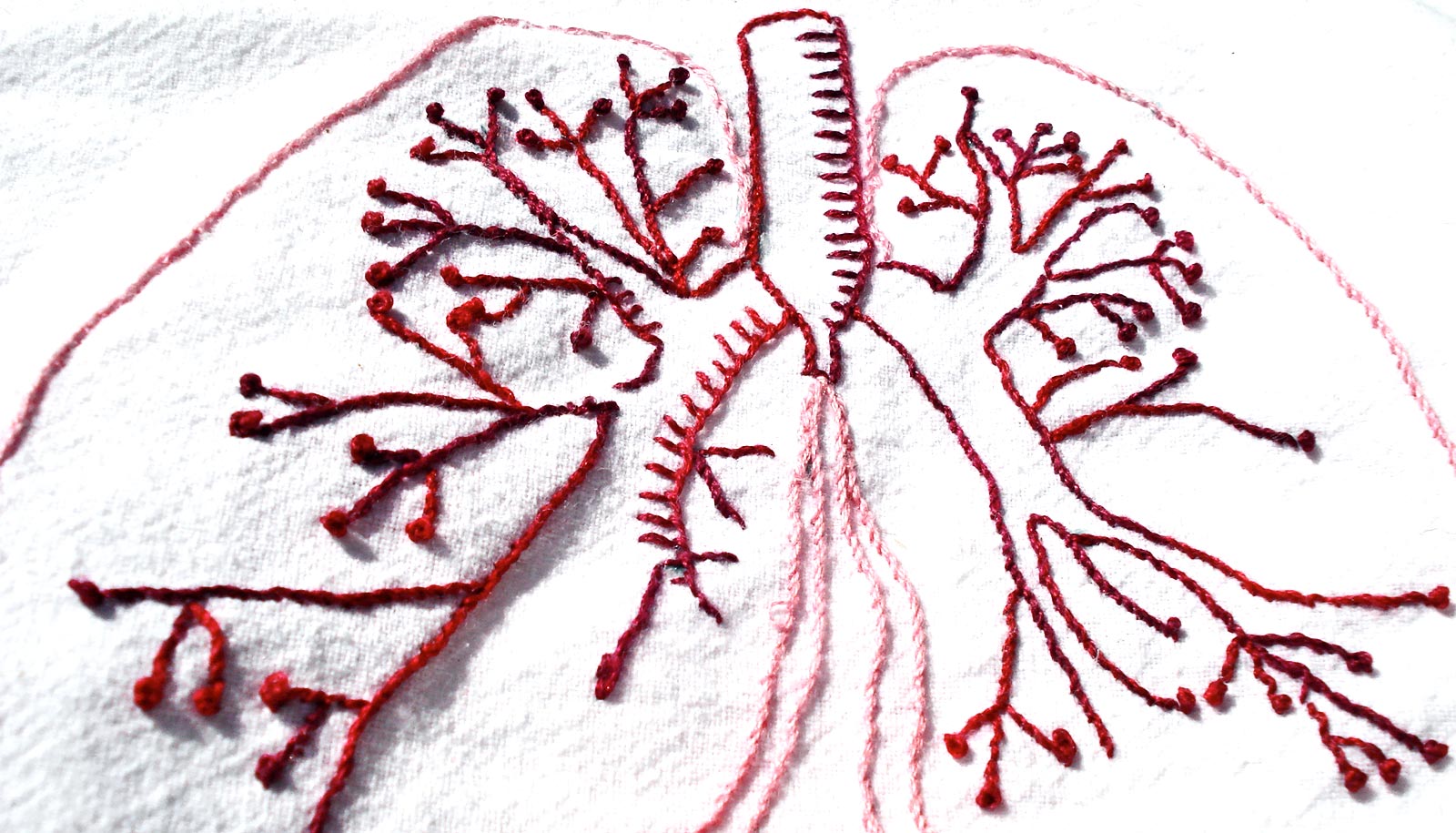Certain pre-existing conditions may double or triple mortality risk for COVID-19, researchers report.
A large, international study of COVID-19 patients confirmed that cardiovascular disease, hypertension, diabetes, congestive heart failure, chronic kidney disease, stroke, and cancer can increase a patient’s risk of dying from the virus.
The researchers say their findings may help public health officials improve patient care and develop interventions that can target these high-risk populations.
The researchers found that cardiovascular disease may double a patient’s risk of dying from COVID-19. They also discovered that other pre-existing conditions may increase a COVID-19 patient’s risk of death by one-and-a-half to three times. The results appear in PLOS ONE.
“This study suggests that these chronic conditions are not just common in patients with COVID-19, but their presence is a warning sign to a higher risk of death,” says Paddy Ssentongo, a doctoral student in epidemiology at the College of Medicine and research assistant professor in Penn State’s engineering science and mechanics department. “There is a high prevalence of cardiovascular disease and hypertension around the world and in particular, the US. With the persistence of COVID-19 in the US, this connection becomes crucially important.”
The research team conducted a systematic review and meta-analysis of studies published from December 2019 through early July 2020, to determine which chronic conditions put hospitalized patients at risk of dying from COVID-19. They explored 11 co-existing conditions that pose a risk of severe disease and death among COVID-19 patients, including cardiovascular disease, diabetes, high blood pressure, cancer, chronic kidney disease, chronic obstructive pulmonary disease, stroke, congestive heart failure, asthma, chronic liver disease, and HIV/AIDS.
Ssentongo and colleagues analyzed data from more than 65,000 patients from 25 studies worldwide. Patients in the selected studies had an average age of 61 years. They found that certain pre-existing health conditions affected survival rates more than others.
When compared to hospitalized COVID-19 patients without pre-existing conditions, researchers determined that patients with diabetes and cancer are 1.5 times more likely to die; patients with cardiovascular disease, hypertension, and congestive heart failure are twice as likely to die; and patients with chronic kidney disease are three times more likely to die.
“Although the health care community has circulated anecdotal information about the impact of these risk factors in COVID-19 mortality, our systematic review and meta-analysis is the most comprehensive to date that attempts to quantify the risk,” says senior author Vernon Chinchilli, professor and chair of public health sciences.
“As the COVID-19 pandemic continues through 2020 and likely into 2021, we expect that other researchers will build on our work,” Chinchilli says.
The researchers say that prior studies exploring the association of pre-existing chronic conditions and COVID-19 mortality had limitations in the number of countries included, the number of studies included, and the number of conditions explored. They also say these studies had unaddressed sources of bias that limited the conclusions that can be drawn from them.
“We took an all-inclusive, global approach for this study by examining 11 chronic conditions and including patients from four continents: Asia, Europe, North America, and Africa,” Ssentongo says.
“Research suggests that SARS-CoV-2, the virus that causes COVID-19, may become seasonal and require annual vaccination. Once an approved and effective vaccine is available, high-risk individuals with these pre-existing conditions should receive vaccination priority to prevent high mortality rates.”
Even though additional research is needed to fully understand health risks and implications, particularly in understanding the effects of race and ethnicity on COVID-19 survival rates, Ssentongo says these findings can help inform global prevention and treatment strategies.
The researchers received no specific funding for this study and declare no conflicts of interest.
Source: Penn State



